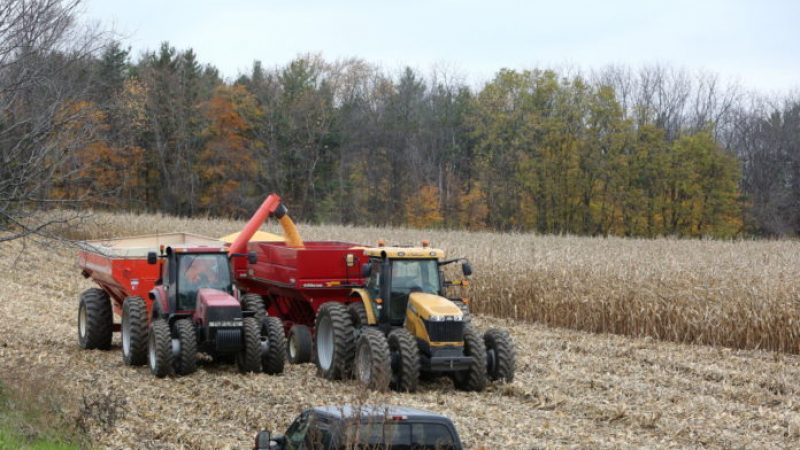Agricultural processing plants of all kinds are facing issues caused by the pandemic, leading to disruptions in supply chains for many agricultural industries.
Dairy, meat and other ag industries are facing issues at the processing level of the supply chain with plants facing a need to change many of the fundamental aspects of the process — from social distancing to packaging changes. Interruptions in virtually any area of the food supply chain can create ripple effects that lead to even bigger problems down the chain, according to a panel of UW experts.
“That’s basically the punchline; supply chains are complicated,” said Gregory DeCroix, professor in supply chain management at the Wisconsin School of Business and one of the panelists a part of “The UW Now” livestream event put on by the UW-Madison alumni association.
Dairy farmers are dumping their milk because processing facilities simply cannot keep up with the supply from farmers. One of the major problems is that processing plants that used to produce paper cartons of milk for school lunches are having a hard time switching production to the plastic containers used by grocery stores.
The dairy industry is particularly hard hit by the pandemic because restaurants are where many Wisconsinites consume a large amount of cheese. Before the pandemic, customers at Wisconsin restaurants were responsible for consuming 40 percent of the cheese and butter produced in the state, according to faculty director of the UW Dairy Innovation Hub Heather White.
Farmers and their cows don’t just stop producing milk all of a sudden, and since the processing facilities cannot process the milk farmers are bringing them fast enough, farmers have been asked to dump their milk by processors. The milk farmers are dumping would go bad if they didn’t dump it. The farmers are typically compensated for the milk they have to dump, but that doesn’t help the record low milk prices, according to White.
Meat processing facilities are facing many of the same issues as dairy processing facilities.
The meat industry is also facing product backups at processing facilities because of a lack of workers at facilities. The nationwide lockdown is limiting the movement of many migrant workers almost every aspect of the food supply chain relies on, according to Jeff Sindelar, associate professor in the Department of Animal Sciences.
Grocery stores are demanding more low-price cuts of meat while typically higher-priced cuts are heavily discounted at stores. The stress on the food supply chain from the change in product demand from grocery stores is compounded by the inability of processing facilities to make the changes they need to make quickly, according to Sindelar.
“We are in this very off-kilter supply-and-demand phase,” said Sindelar. “The meat, animal and agriculture industries are fairly robust and resilient. However, when these price fluctuations are so great that they are beyond what can be withstood…that [leads to] really high meat prices.”
Meat prices will come down and stabilize more once restaurants are allowed to re-open, just like dairy and other food prices, the experts predicted.
While Sindelar expects the meat industry to stabilize in the future and meat prices to come down, he expects to see an overall increase in meat prices due to the increased cost associated with the changes the industry has to make to keep people safe and healthy.
Several of the experts suggested food supply chains should become more responsive and centralized rather than focusing on efficiency. Keeping food supply chains local from producer to consumer and everywhere in between could help minimize food waste and lead to a more stable market, they said.
Some of the farmers markets across Wisconsin have seen success with switching to e-commerce and direct-delivery formats where consumers pick what they want from farmers on their phones.
While this has helped farmers sell their products and consumers get fresh food, many of these markets will need to change venues because their current ones are either not large enough to fit all the cars of customers or the venues simply aren’t open to mass gatherings of people, according to Michelle Miller, associate director of the Center for Integrated Agricultural Systems.
–By Adam Kelnhofer
WisBusiness.com



